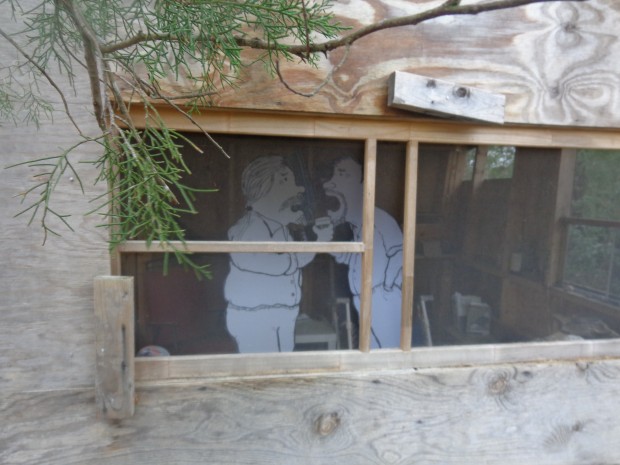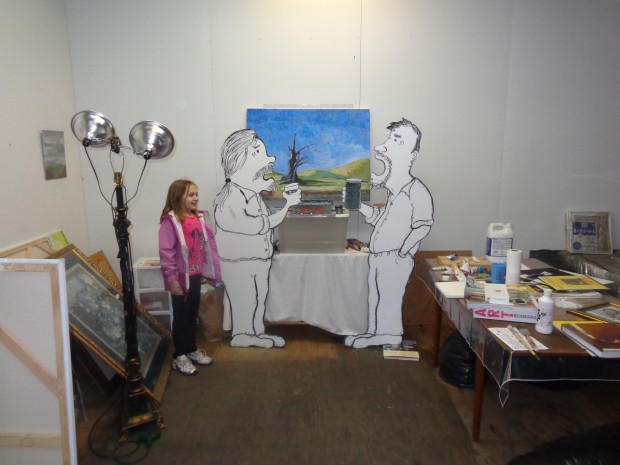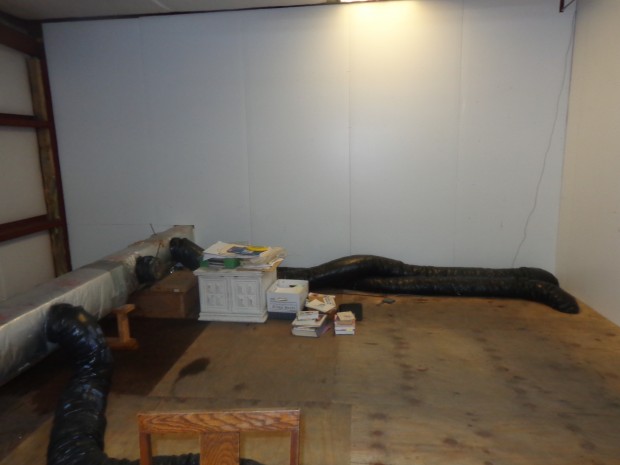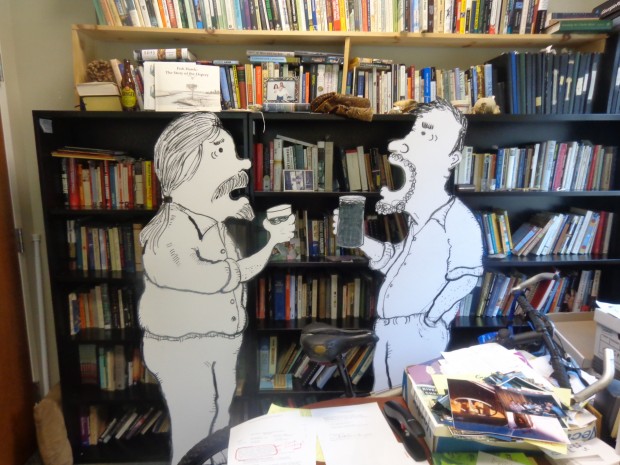Bad Advice Wednesday: Move Around!
categories: Cocktail Hour
1 comment

I talk a lot about momentum in these posts. Getting yourself into movement, keeping yourself in movement. I talk about it because I believe that’s how books get started and how books get written and how books get finished. Making a book isn’t an easy thing to do. It takes drive sure, but what it really takes, in my experience, is an initial push. Elsewhere I have described how Rafeal Nadal might be a good role model for the writer in the midst of making a book. What I didn’t mention is that Nadal’s own rallying cry—“Vamos!”—isn’t a bad self-exhortation for any writer facing the morning’s work.
But enough about that. Today I want to talk about another, less metaphorical type of movement. I want to talk about the virtues of working in different places. If you are the sort of writer who can sit down in a library carol and crank out ten pages a day of the novel every day, then read no further. But if you are like me, and require variety and stimulation, then consider the value of working in different places at different times. The most beautiful evocation, and example, of this sort of work that I know of is Donald Hall’s description, in his book ,
Life Work, of the working day of the sculptor Henry Moore. Moore came into fame and money relatively late, but when he did he bought some land in the English countryside, and on that land he built several studios. Hall writes: “All day he rode a bicycle over his acreage in the rolling farmland, patrolling his studios to work on different projects.” In this way he could turn to a new project—large sculptures, bronze casts, pencil sketches—when the one he was working on ran dry. And he could re-charge while moving between.
“Well, I don’t own ‘acreage’ in the English countryside,” you might say. I don’t either, I promise, though I have tried to create the poor man’s equivalent. I do most of my writing in the study in my house but during the course of the day I also work at my writing shack out in our backyard (see picture above) and my office at school, letting the time it takes to move between them serve as a kind of palate cleanser between projects. I also, as of January, started renting an art studio above a brake shop with my friend Clyde Edgerton, who has lately taken to painting as a creative outlet to complement his writing. (The truth is that I have not used the art studio a single time yet, however, do to my inability to use my right arm after my January bike accident.)

Art Studio–Clyde’s side
If you are a young writer reading this, my own multiple offices might seem as unattainable as Henry Moore’s country estate, but my own instinct to move came long before I had the means to have work places, plural. For instance, the woods and the beach, which have always been and still are an important part of my work day, cost nothing. Since it has been my experience that words come easily in beautiful places, I am shocked by how infrequently most young writers make use of the natural world. If I were going to list the places where I currently write, for instance, I would have to include the “Dinosaur Bone,” my daughter’s (and my) name for the fallen fossil-like tree with the perfect butt-shaped seat that looks over the Cape Fear River down at Carolina Beach State Park. Stuck in one place, my home study, say, I head to another. Different words come in different places. Maybe I just head to school to print out the third draft of the essay that I’ll read down at the Dinosaur Bone or maybe while reading in the shack I’ll come up with the right sentence to use the next morning at my desk in the study. The point is movement, jostling, changing places while staying always in the main place you want to be: the place where the words are.
More of the places where I work:

Art Studio–my side

Office at School


Very, very interesting stuff. I do have a question though. Say you’re working on a certain passage in a certain place. And then you run out of time for whatever reason and have to pick it up later that day in a different place. Because different places generate different states of mind and are tied to different interests, is the passage in danger of becoming uneven (one piece is too tonally, stylistically different from the next)? Or is there no danger because it’ll all get smoothed over in editing?